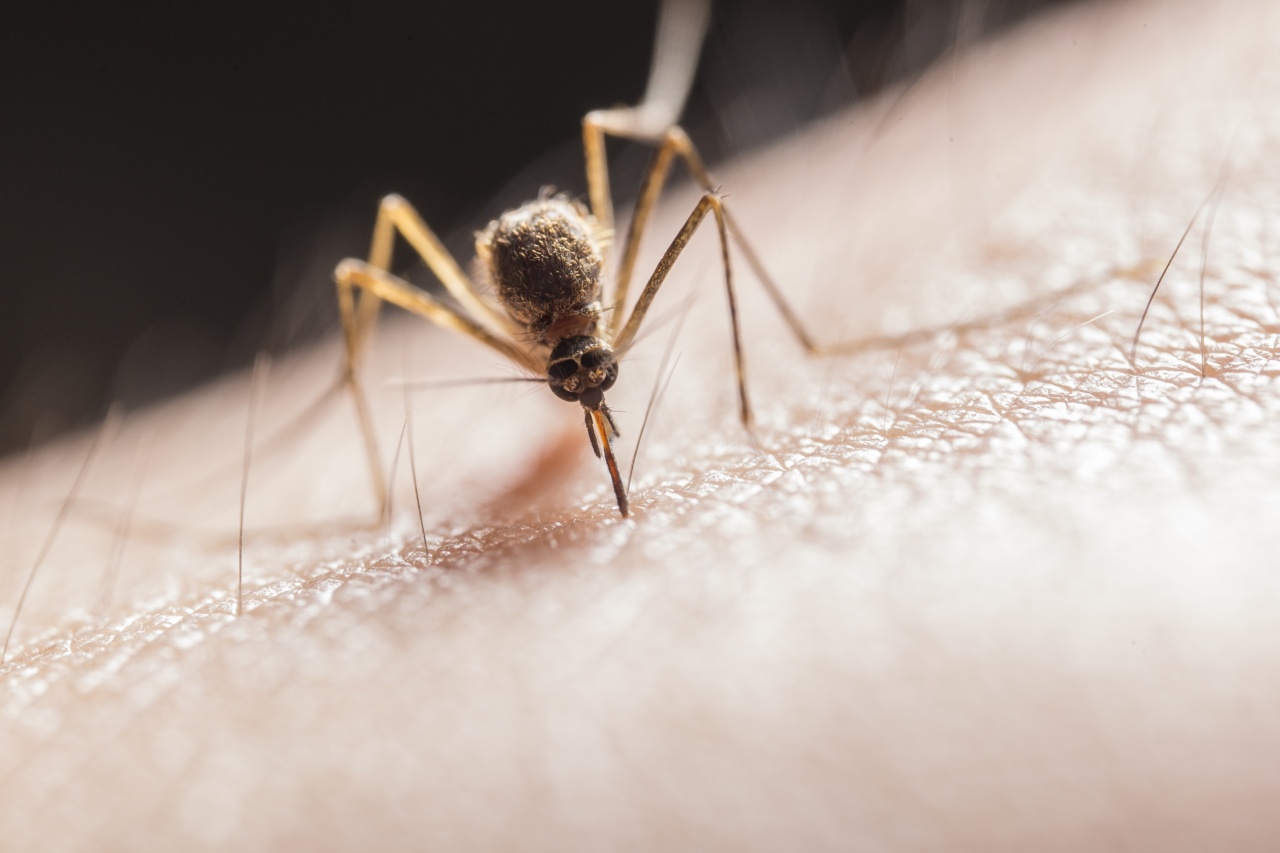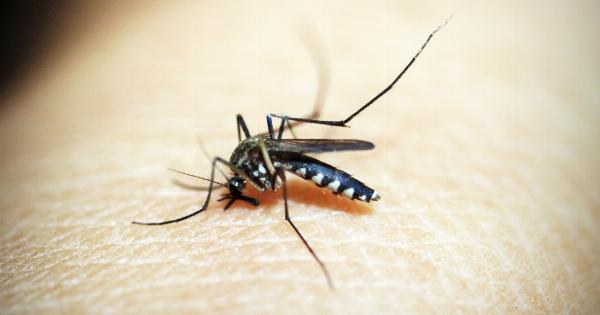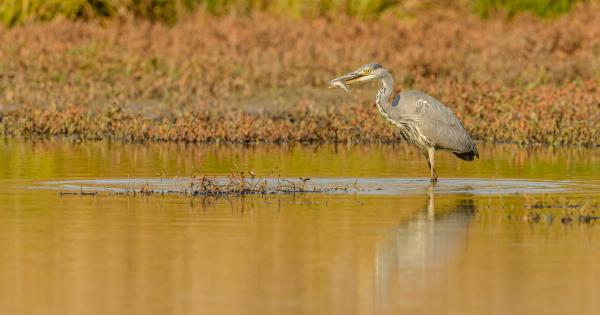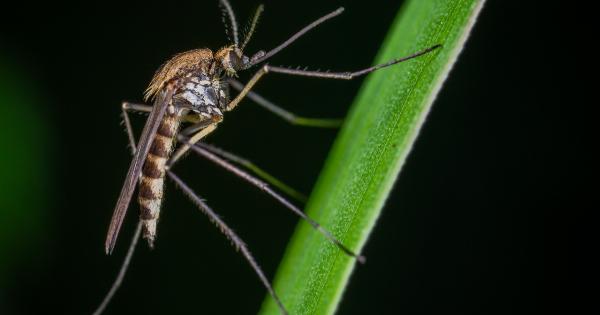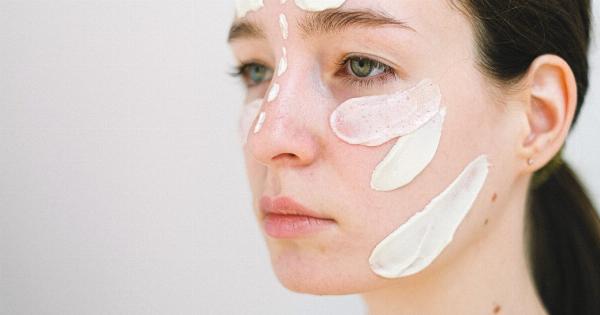It’s summertime, and that means spending more time outdoors, enjoying the warm weather and sunshine. However, along with the pleasant aspects of summer comes one pesky annoyance – mosquitoes.
These tiny insects can quickly turn a pleasant outdoor experience into an itchy nightmare, leaving behind red, swollen mosquito bites on our skin.
What Causes Mosquito Bites?
When a mosquito lands on our skin, it pierces the surface with its proboscis (a long, tubular mouthpart) to find and access a blood vessel.
To prevent blood clotting and facilitate easy blood flow, mosquitoes inject a small amount of saliva into our skin as an anti-coagulant. It is this saliva that is responsible for our body’s reaction and the subsequent itching and swelling.
The Itch-Scratch Cycle
As soon as we notice a mosquito bite, our instinctive reaction is to scratch it to relieve the itchiness. However, this temporary relief triggers what is known as the itch-scratch cycle.
Scratching the mosquito bite can provide immediate satisfaction, but it also activates our body’s defense mechanism, resulting in the release of histamines.
Histamines are chemicals that our immune system produces in response to an allergen or irritation. When released, histamines cause the blood vessels near the bite to expand, increasing blood flow to the area, which in turn leads to redness and swelling.
Moreover, histamines also trigger the nerve cells in the affected area, causing intense itching.
Complications of Scratching Mosquito Bites
While scratching a mosquito bite may seem harmless, it can often lead to more severe consequences:.
1. Increased Itchiness
Scratching can further irritate the skin and worsen the itching sensation. The more you scratch, the more histamines are released, heightening the itching and potentially spreading it to surrounding areas of your skin.
2. Skin Infections
The constant scratching of mosquito bites can break the skin, creating open wounds. These small breaks in the skin provide an entry point for bacteria, increasing the risk of developing a secondary skin infection.
Conditions like impetigo or cellulitis may occur, leading to more discomfort and potentially requiring medical intervention.
3. Scarring
Repeated scratching can damage the delicate skin tissues, leading to the formation of scars. This is especially true for individuals prone to developing keloids, which are raised, thickened scars that can be difficult to treat.
4. Delayed Healing
Constant scratching interferes with the healing process. It prolongs the time it takes for your body to repair the damaged skin and increases the risk of developing complications, such as an infected bite or a more noticeable scar.
5. Spreading of Diseases
Mosquitoes are known carriers of various diseases, including dengue, malaria, Zika virus, and West Nile virus.
When you scratch a mosquito bite, you increase the risk of introducing harmful bacteria or viruses from your hands or nails into the broken skin, potentially leading to the transmission of these diseases.
How to Relieve Mosquito Bite Itchiness
While scratching may provide temporary relief, there are many alternative methods to relieve mosquito bite itchiness without causing further harm:.
1. Apply Cold Compresses
Using a cold compress or an ice pack can help numb the affected area, providing temporary relief from the itching sensation. Wrap ice cubes in a clean cloth and gently press it against the mosquito bite for a few minutes.
2. Take Oral Antihistamines
Over-the-counter oral antihistamines, such as diphenhydramine or cetirizine, can help reduce itching caused by mosquito bites.
However, always consult with a healthcare professional before taking any medications, especially if you have underlying medical conditions or are taking other prescription drugs.
3. Topical Anti-Itch Creams
Topical creams containing ingredients like hydrocortisone or calamine lotion can help alleviate itchiness. Apply a small amount of cream directly onto the mosquito bite and gently rub it in. Be cautious to follow the instructions and avoid excessive use.
4. Keep the Bite Clean and Dry
Washing the affected area with mild soap and water can help prevent infection and minimize the risk of complications. After washing, gently pat the bite dry with a clean towel.
5. Use Natural Remedies
There are several natural remedies that can effectively reduce itching, such as aloe vera gel, tea tree oil, or oatmeal baths. These remedies have soothing properties that can provide relief without the need for scratching.
Preventing Mosquito Bites
Prevention is always better than cure when it comes to mosquito bites. Here are some measures you can take to reduce your chances of getting bitten:.
1. Wear Protective Clothing
When spending time outdoors, especially during dawn and dusk when mosquitoes are most active, wear long-sleeved shirts, long pants, and socks to minimize exposed skin. Additionally, consider clothing treated with insect repellent for added protection.
2. Use Insect Repellent
Apply insect repellent containing DEET, picaridin, or oil of lemon eucalyptus to exposed areas of skin. These repellents can help deter mosquitoes and reduce the likelihood of being bitten.
3. Eliminate Standing Water
Mosquitoes breed in stagnant water, so be sure to empty or regularly change the water in containers like flower pots, bird baths, or pet water bowls. Additionally, keep gutters clean and repair any leaks or areas where water may accumulate.
4. Install Window and Door Screens
Keeping mosquitoes outside is a key preventive measure. Install screens on windows and doors to prevent them from entering your home. Ensure there are no holes or tears in the screens that mosquitoes could exploit as entry points.
5. Avoid Peak Mosquito Activity
Mosquitoes are most active during dawn and dusk. If possible, limit your outdoor activities during these times, when the chances of mosquito bites are highest.
